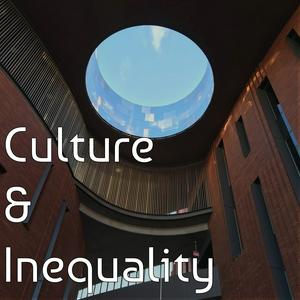Risk and Loss in Times of Climate Crisis
In this episode we’ll be discussing the climate crisis through the lens of risk, loss and the role of sociology. For a long time, environmental issues sat on the margins of the discipline, rarely appearing in core journals or debates. That’s starting to change, with climate change gaining more attention in recent sociological research—but given the urgency of the crisis, we might still ask: are sociologists doing enough?
Another key point is how sociological knowledge is valued outside the discipline. Climate science has long been dominated by the natural sciences, with institutions like the IPCC reflecting that imbalance. Yet as the need for societal transformation becomes more pressing, sociology’s insights into behavior, systems, and power could be more relevant than ever.
As guests we have Catherine Mei Ling Wong, an Assistant Professor of Cultural Sociology at the University of Amsterdam, specializing in environmental sociology, risk governance, and sustainability transitions. Her research explores how cultural, institutional, and epistemological factors shape perceptions of risk in areas like nuclear energy, climate policy, and green finane.
She joined by Rebecca Elliott, an Associate Professor of Sociology at the London School of Economics and Political Science, specializing in the intersections of climate change, risk governance, and the moral economy. Her research examines how environmental risks, particularly flooding, are managed through institutions like insurance, and how these mechanisms influence societal responses to climate change.
Thijs van Dooremalen is the host of this episode an Assistant Professor at Leiden University's Institute of Security and Global Affairs, specializing in the sociology of crises and public discourse. His research focuses on how major events—such as 9/11, elections, and extreme weather—transform national public spheres, employing mixed methods to analyze cultural and political shifts across media, politics, and policymaking.
Further reading for this episode
- Wong, C. M. L., & Lockie, S. (2020). Climate policy and industry elite perceptions of risk and uncertainty: a cross-national study. Society & Natural Resources, 33(11), 1399-1418.
- Wong, C. M. L. (2018). Energy, Risk and Governance. Palgrave Macmillan.
- Wong, C. M. L. (2015). The mutable nature of risk and acceptability: A hybrid risk governance framework. Risk analysis, 35(11), 1969-1982.
- Elliott, R. (2024). The sociology of property value in a climate-changed United States. Social Problems, spae074.
- Elliott, R. (2021). Underwater: Loss, flood insurance, and the moral economy of climate change in the United States. Columbia University Press.
- Elliott, R. (2018). The sociology of climate change as a sociology of loss. European Journal of Sociology/Archives Européennes de Sociologie, 59(3), 301-337.
Podcast editors of this season: Luuc Brans, Kobe De Keere, Sanne Pieters & Geert Veuskens
This podcast is co-financed from the BINQ project, funded by the European Research Council (ERC) under the European Union’s Horizon 2020 research and innovation programme, Grant No. 101052649. Views and opinions expressed are however those of the author(s) and do not necessarily reflect those of the European Union or the European Research Council Executive Agency. Neither the European Union nor the granting authority can be held responsible for them.
This podcast is also kindly supported by the Amsterdam Institute for Social Science Research (AISSR) at the University of Amsterdam.
